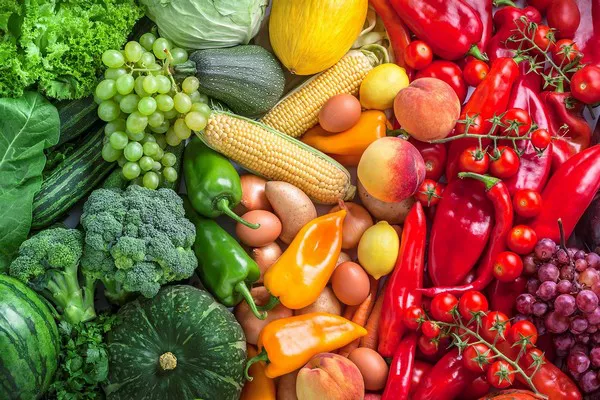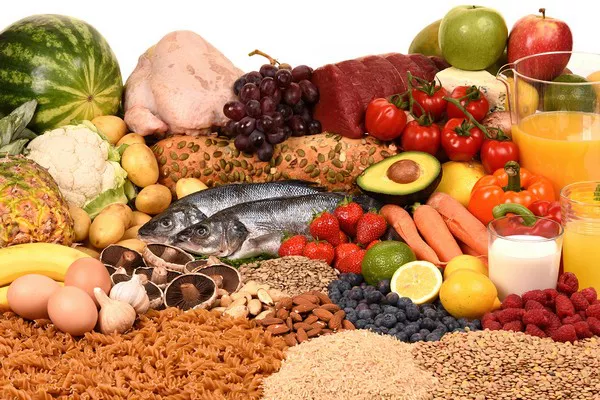B vitamins are a group of water-soluble vitamins that play a crucial role in various bodily functions. They are vital for maintaining energy levels, supporting metabolism, and promoting overall well-being. Since the human body cannot produce B vitamins on its own, it is essential to obtain them from a balanced diet. In this article, we will explore the benefits of B vitamins, their individual functions, and the top foods that are rich sources of these vital nutrients.
The Importance of B Vitamins
B vitamins are essential for a range of biological processes that support overall health. They play a key role in converting food into energy, aiding in the breakdown of carbohydrates, proteins, and fats. B vitamins also contribute to the proper functioning of the nervous system, skin health, and cell production. Furthermore, they are essential for red blood cell formation and DNA synthesis.
The B vitamin family consists of eight distinct members, each with unique functions:
1. B1 (Thiamine) Vitamin
Helps convert food into energy and supports nerve function.
Top Foods High in B1 Vitamin
Whole grains (such as oats, rice, and wheat)
Legumes (beans, lentils, and peas)
Nuts and seeds (especially sunflower seeds and flaxseeds)
Pork and lean meats
B1 Deficiency
Beriberi and Wernicke-Korsakoff syndrome, which affect the nervous system.
2. B2 (Riboflavin) Vitamin
Important for energy production and maintaining healthy skin and vision.
Top Foods High in B2 Vitamin
Dairy products (milk, yogurt, and cheese)
Organ meats (liver and kidneys)
Lean meats (chicken and turkey)
Leafy green vegetables (spinach and kale)
B2 Deficiency
Skin disorders and oral health problems.
3. B3 (Niacin) Vitamin
Supports metabolism and cardiovascular health.
Top Foods High in B3 Vitamin
Meat (beef, poultry, and pork)
Fish (tuna and salmon)
Whole grains (barley and quinoa)
Legumes (peanuts and soybeans)
B3 Deficiency
Pellagra, characterized by skin, digestive, and nervous system issues.
4. B5 (Pantothenic Acid) Vitamin
Aids in hormone and cholesterol synthesis.
Top Foods High in B5 Vitamin
Organ meats (liver and kidney)
Chicken and turkey
Fish (salmon and trout)
Avocado
5. B6 (Pyridoxine) Vitamin
Assists in amino acid metabolism and neurotransmitter production.
Top Foods High in B6 Vitamin
Poultry (chicken and turkey)
Fish (tuna and salmon)
Potatoes and starchy vegetables
Nuts and seeds (sunflower seeds and pistachios)
6. B7 (Biotin) Vitamin
Essential for healthy hair, skin, and nails.
Top Foods High in B7 Vitamin
Eggs
Nuts (almonds and walnuts)
Seeds (chia seeds and flaxseeds)
Sweet potatoes
7. B9 (Folate) Vitamin
Crucial for fetal development during pregnancy and DNA synthesis.
Top Foods High in B9 Vitamin
Leafy green vegetables (spinach and kale)
Legumes (lentils and chickpeas)
Fortified grains (cereals and bread)
Citrus fruits (oranges and grapefruits)
B9 Deficiency
Anemia and birth defects in pregnant women.
8. B12 (Cobalamin) Vitamin
Important for nerve function and red blood cell production.
Top Foods High in B12 Vitamin
Fish (salmon and trout)
Shellfish (clams and mussels)
Poultry (chicken and turkey)
Dairy products (milk and cheese)
B12 Deficiency
Pernicious anemia and neurological problems.
SEE ALSO: What is B12 Vitamins: A Complete Overview
Factors Affecting B Vitamin Levels in Food
Several factors can influence the B vitamin content in foods. These include:
1. Processing and Cooking Methods
Exposure to heat and light during food processing and cooking can lead to significant losses of B vitamins. To retain the highest nutrient levels, opt for steaming, roasting, or consuming raw foods whenever possible.
2. Storage Conditions
Storing food properly is crucial to preserving its B vitamin content. Refrigeration and minimal exposure to air and light can help prevent nutrient degradation.
3. Soil Quality
B vitamin levels in plant-based foods can be influenced by the nutrient content of the soil in which they are grown. Consuming organic produce and nutrient-rich soil supplements may help increase B vitamin intake.
Incorporate B Vitamin-Rich Foods into Diet
Incorporating more B vitamin-rich foods into your diet is not only beneficial for your health but also quite feasible with some simple adjustments. Here are some practical tips to help you increase your intake of B vitamins:
1. Diversify Your Food Choices: Aim to include a wide variety of foods in your meals to ensure you are getting a broad spectrum of B vitamins. Incorporate fruits, vegetables, whole grains, legumes, nuts, seeds, dairy, and lean meats into your diet.
2. Start Your Day with Fortified Breakfast Cereals: Look for breakfast cereals that are fortified with B vitamins, especially B12 and folic acid. Pair these with fortified plant-based milk or regular milk for an added nutrient boost.
3. Snack on Nuts and Seeds: Nuts and seeds, such as almonds, sunflower seeds, and flaxseeds, are excellent sources of B vitamins. Keep them on hand for a quick and nutritious snack.
4. Add Leafy Greens to Your Salads: Leafy greens like spinach, kale, and Swiss chard are rich in folate (B9). Toss them into your salads, smoothies, or stir-fries to increase your B vitamin intake.
5. Choose Whole Grains: Opt for whole grains like quinoa, brown rice, and oats instead of refined grains. Whole grains contain higher amounts of B vitamins and other essential nutrients.
6. Include Legumes in Your Meals: Legumes, such as lentils, chickpeas, and black beans, are not only high in B vitamins but also a great source of plant-based protein. Incorporate them into soups, stews, salads, or even make hummus for a flavorful and nutritious dip.
7. Enjoy Lean Meats and Poultry: If you consume meat, choose lean cuts of chicken, turkey, and pork, which are good sources of B vitamins, especially B6 and B12.
8. Consume Fatty Fish: Fatty fish like salmon, trout, and tuna are not only rich in B vitamins but also provide heart-healthy omega-3 fatty acids.
9. Incorporate Dairy or Dairy Alternatives: Dairy products like milk, yogurt, and cheese are sources of several B vitamins, particularly B2 and B12. If you follow a vegan diet, opt for fortified plant-based alternatives like almond milk or soy yogurt.
10. Use Nutritional Yeast: Nutritional yeast is a vegan-friendly source of B vitamins, especially B12. Sprinkle it on salads, pasta dishes, or use it to make savory sauces and dressings.
11. Plan Balanced Meals: Create meals that include a combination of different food groups, such as a stir-fry with vegetables, lean protein, and whole grains, to ensure you’re getting a variety of B vitamins.
12. Be Mindful of Cooking Methods: Overcooking or boiling foods for extended periods can lead to nutrient loss, including B vitamins. Opt for cooking methods like steaming, roasting, or sautéing to preserve nutrient content.
13. Consider Supplementation if Necessary: While getting B vitamins from food is ideal, some individuals, such as vegans or those with specific medical conditions, may require supplements to meet their needs. Consult a healthcare professional before starting any supplementation.
Delicious Recipes High in B Vitamins
Incorporating B vitamin-rich foods into your meals can be both delicious and nutritious. Here are three flavorful recipes that are high in B vitamins:
1. Quinoa and Black Bean Salad
Ingredients:
1 cup cooked quinoa
1 can (15 oz) black beans, drained and rinsed
1 cup cherry tomatoes, halved
1 small red onion, finely diced
1 avocado, diced
1/4 cup fresh cilantro, chopped
Juice of 1 lime
2 tablespoons extra-virgin olive oil
Salt and pepper to taste
Instructions:
In a large bowl, combine the cooked quinoa, black beans, cherry tomatoes, red onion, avocado, and cilantro.
In a small bowl, whisk together the lime juice, olive oil, salt, and pepper to make the dressing.
Pour the dressing over the quinoa mixture and toss until well combined.
Serve the salad chilled or at room temperature as a side dish or a light meal.
Nutritional Benefits:
Quinoa is a good source of B vitamins, particularly B1, B2, and B6. Black beans are rich in B vitamins, especially B1 and B6. Avocado provides B vitamins like B5 and B6.
2. Baked Salmon with Lemon-Dill Sauce
Ingredients:
4 salmon fillets
2 tablespoons olive oil
2 tablespoons fresh dill, chopped
2 garlic cloves, minced
Juice of 1 lemon
Salt and pepper to taste
For Lemon-Dill Sauce:
1/2 cup plain Greek yogurt
1 tablespoon fresh dill, chopped
Zest of 1 lemon
Salt and pepper to taste
Instructions:
Preheat the oven to 375°F (190°C).
Place the salmon fillets on a baking sheet lined with parchment paper. Drizzle with olive oil and sprinkle with dill, minced garlic, lemon juice, salt, and pepper.
Bake the salmon in the preheated oven for about 15-20 minutes or until it flakes easily with a fork.
While the salmon is baking, prepare the lemon-dill sauce. In a small bowl, mix together the Greek yogurt, fresh dill, lemon zest, salt, and pepper.
Serve the baked salmon with the lemon-dill sauce on the side.
Nutritional Benefits:
Salmon is an excellent source of B vitamins, particularly B6 and B12. Greek yogurt contributes B2 and B12 to this dish.
3. Spinach and Chickpea Curry
Ingredients:
1 tablespoon vegetable oil
1 large onion, finely chopped
3 garlic cloves, minced
1 tablespoon fresh ginger, grated
1 tablespoon curry powder
1 teaspoon ground cumin
1 teaspoon ground coriander
1/2 teaspoon turmeric
1 can (15 oz) chickpeas, drained and rinsed
2 cups fresh spinach leaves
1 can (14 oz) coconut milk
Salt and pepper to taste
Cooked rice or naan bread for serving
Instructions:
Heat the vegetable oil in a large skillet over medium heat. Add the chopped onion and cook until it becomes translucent.
Stir in the minced garlic and grated ginger, and sauté for another minute.
Add the curry powder, cumin, coriander, and turmeric to the skillet. Cook the spices with the onion mixture for about 1-2 minutes to release their flavors.
Add the chickpeas and fresh spinach leaves to the skillet. Stir well to coat them with the spices.
Pour in the coconut milk and bring the mixture to a simmer. Let it cook for about 10-15 minutes until the flavors meld together and the sauce thickens slightly.
Season with salt and pepper to taste.
Serve the spinach and chickpea curry over cooked rice or with naan bread.
Nutritional Benefits:
Chickpeas provide B vitamins like B6 and folate. Spinach contributes B9 (folate) to this curry.
B Vitamins and Special Diets
Certain diets may require careful consideration to ensure adequate B vitamin intake:
1. Vegetarian and Vegan Diets
Vegans and vegetarians should pay special attention to consuming B12-fortified foods or consider supplementation, as this vitamin is mainly found in animal products.
2. Gluten-Free Diets
Individuals with celiac disease or gluten sensitivity need to find alternative sources of B vitamins, as many fortified grains contain gluten. Opt for gluten-free grains fortified with B vitamins or consider supplements.
Conclusion
B vitamins play an indispensable role in maintaining optimal health and well-being. Including a variety of foods rich in B vitamins in your diet can support energy production, metabolism, and the proper functioning of various bodily systems. By being mindful of food selection, preparation, and storage methods, you can ensure that you receive an ample supply of these essential nutrients. If you have specific dietary concerns or suspect a deficiency, consult a healthcare professional to address your individual needs accurately. Embrace a balanced diet and pave the way for a healthier, more energetic lifestyle with the power of B vitamins.
[inline_related_posts title=”Related Topics” title_align=”left” style=”list” number=”3″ align=”none” ids=”1199,1101,937″ by=”categories” orderby=”rand” order=”DESC” hide_thumb=”no” thumb_right=”no” views=”no” date=”yes” grid_columns=”1″ post_type=”” tax=””]


































